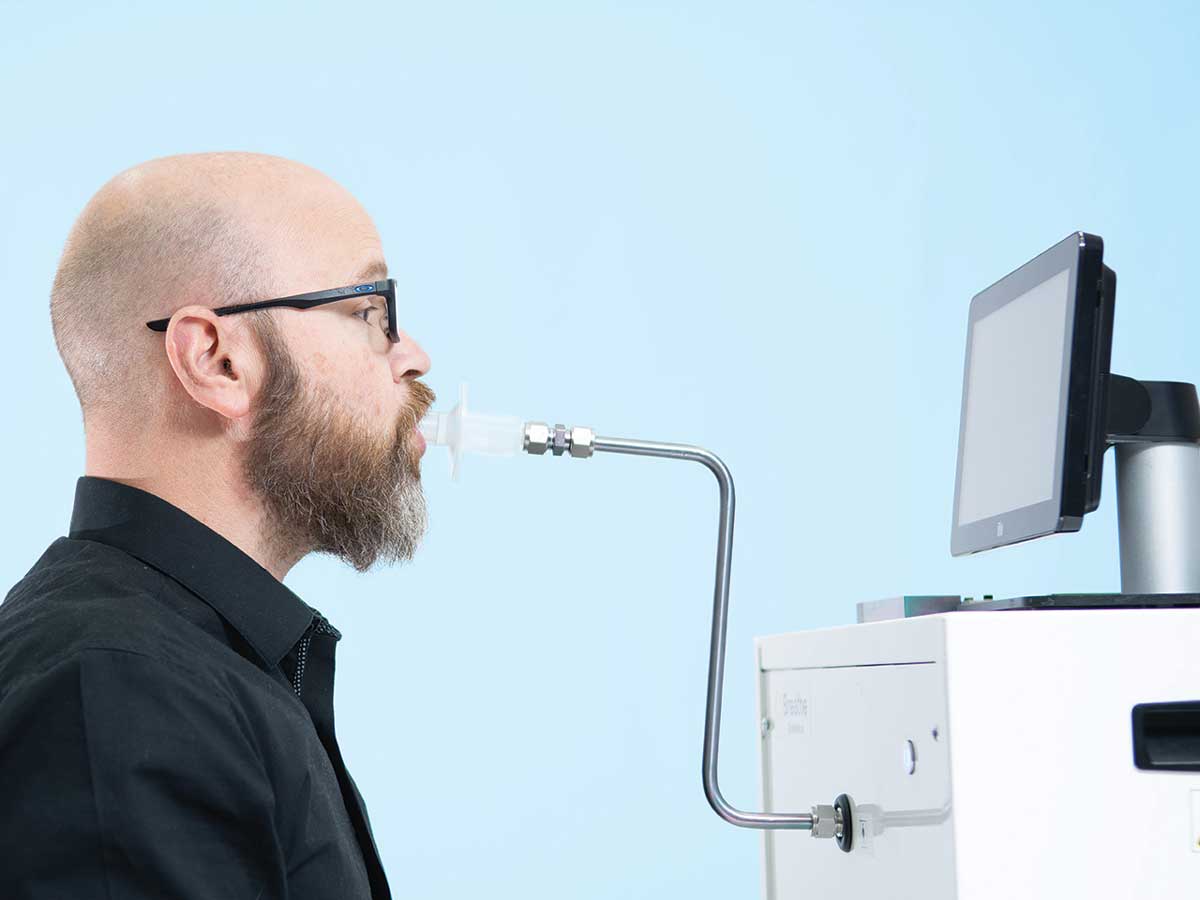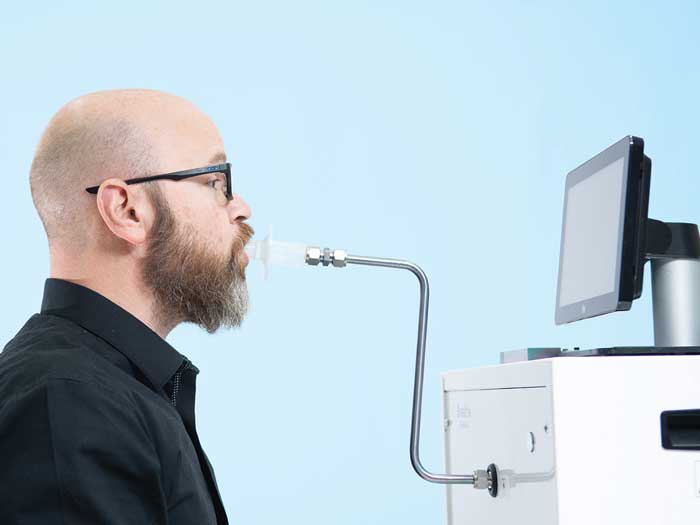
A new breath test makes disease detection easier
 Breathe Biomedical’s device could be the key to helping people get the treatment they need early and easily (Photo courtesy of Breathe Biomedical)
Breathe Biomedical’s device could be the key to helping people get the treatment they need early and easily (Photo courtesy of Breathe Biomedical)
What if learning what’s happening in your body was as simple as taking a deep breath and blowing into a plastic mouthpiece? If startup Breathe BioMedical has its way, that’s exactly what Canadians will be able to do within just a couple of years.
The Moncton, NB-based company has pioneered a ‘breathalyzer’ test that could be the key to unlocking health diagnoses—and helping people get the treatment they need early and easily.
“Currently, in Canada, most lung cancer is detected in Stage 3 or 4. That’s when treatment options really are limited,” explains the company’s CEO, Stephen Graham. “It’s been widely studied and shown that if you can detect lung cancer earlier, in Stage 1, the patient survivability rate [was 10 times higher] than those diagnosed at Stage 4. There is a benefit to getting people screened so we can diagnose the cancer earlier and get more immediate and effective treatment for better outcomes.”
Here's how it works: Your breath contains volatile organic compounds (VOCs) that are present at different concentrations when disease is in your body. So, patients just need to breathe normally into a special device for 20 to 25 minutes to generate a sample. From there, Breathe BioMedical’s technology, which builds on 30 years of scientific research, analyzes the VOC levels in the sample using infrared light.
The company is working with Saint John Regional Hospital to collect data to complete its first study on lung cancer, which has so far shown 86 per cent accuracy in detecting the disease. (The Canadian Task Force on Preventive Health Care currently recommends high-risk Canadians screen for lung cancer through annual low-dose CT scans, which have been found to reduce lung cancer deaths, but also come with a risk of false positives.) The company is also carrying out a different study on breast cancer and is so far reporting 82 per cent accuracy in diagnosing breast cancer in its early stages.
And the benefits of this type of testing go beyond early diagnosis. It could also improve access to healthcare, especially for those in rural or Northern communities who may not have a hospital or specialized healthcare centre nearby. In fact, the technology is designed so that someone with zero medical training can learn to use it in two hours.
“It could be in nursing stations in very remote areas and the test you take would be the same one you would take in downtown Toronto,” explains Dr. Graham. “It really does make it more accessible. It’s a movement toward health equity.”
CHECK THE PULSE OF INNOVATION IN CANADA
Learn about Canadian CPAs who are working on the forefront of innovation, and find out what CPA Nicole Barry, CFO of Toronto's MaRS Discovery District, has to say about the future of innovation in Canada.